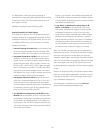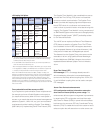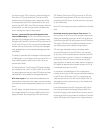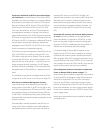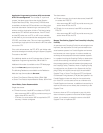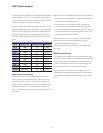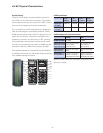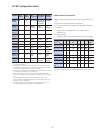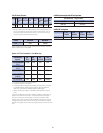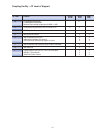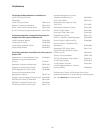GDPS
Geographically Dispersed Parallel Sysplex (GDPS) is
designed to provide a comprehensive end-to-end con-
tinuous availability and/or disaster recovery solution
for System z servers, Geographically Dispersed Open
Clusters (GDOC) is designed to address this need for
open systems. When available, GDPS 3.5 will support
GDOC for coordinated disaster recovery across System
z and non-System z servers if Veritas Cluster Server is
already installed. GDPS and the new Basic HyperSwap
(available with z/OS V1.9) solutions help to ensure system
failures are invisible to employees, partners and customers
with dynamic disk-swapping capabilities that ensure appli-
cations and data are available. z10 BC—big on service,
low on cost.
GDPS is a multi-site or single-site end-to-end application
availability solution that provides the capability to manage
remote copy confi guration and storage subsystems
(including IBM TotalStorage), to automate Parallel Sysplex
operation tasks and perform failure recovery from a single
point of control.
GDPS helps automate recovery procedures for planned
and unplanned outages to provide near-continuous avail-
ability and disaster recovery capability.
For additional information on GDPS, visit: http://www-
03.ibm.com/systems/z/gdps/.
Fiber Quick Connect (FQC), an optional feature on z10
BC, is offered for all FICON LX (single-mode fi ber) chan-
nels, in addition to the current support for ESCON (62.5
micron multimode fi ber) channels. FQC is designed to
signifi cantly reduce the amount of time required for on-site
installation and setup of fi ber optic cabling. FQC facilitates
adds, moves, and changes of ESCON and FICON LX fi ber
optic cables in the data center, and may reduce fi ber con-
nection time by up to 80%.
FQC is for factory installation of Fiber Transport System
(FTS) fi ber harnesses for connection to channels in the I/O
drawer.
FTS fi ber harnesses enable connection to FTS
direct-attach fi ber trunk cables from IBM Global Technol-
ogy Services.
FQC, coupled with FTS, is a solution designed to help
minimize disruptions and to isolate fi ber cabling activities
away from the active system as much as possible.
IBM provides the direct-attach trunk cables, patch panels,
and Central Patching Location (CPL) hardware, as well
as the planning and installation required to complete the
total structured connectivity solution. An ESCON example:
Four trunks, each with 72 fi ber pairs, can displace up
to 240 fi ber optic jumper cables, the maximum quantity
of ESCON channels in one I/O drawer. This signifi cantly
reduces fi ber optic jumper cable bulk.
At CPL panels you can select the connector to best meet
your data center requirements. Small form factor connec-
tors are available to help reduce the fl oor space required
for patch panels.
CPL planning and layout is done prior to arrival of the
server on-site using the default CHannel Path IDdentifi er
(CHPID) placement report, and documentation is provided
showing the CHPID layout and how the direct-attach har-
nesses are plugged.
FQC supports all of the ESCON channels and all of the
FICON LX channels in the I/O drawer of the server. On
an upgrade from a z890 or z9 BC, ESCON channels that
are NOT using FQC cannot be used on the z10 BC FQC
feature.
60
Fiber Quick Connect for FICON LX
Environments



